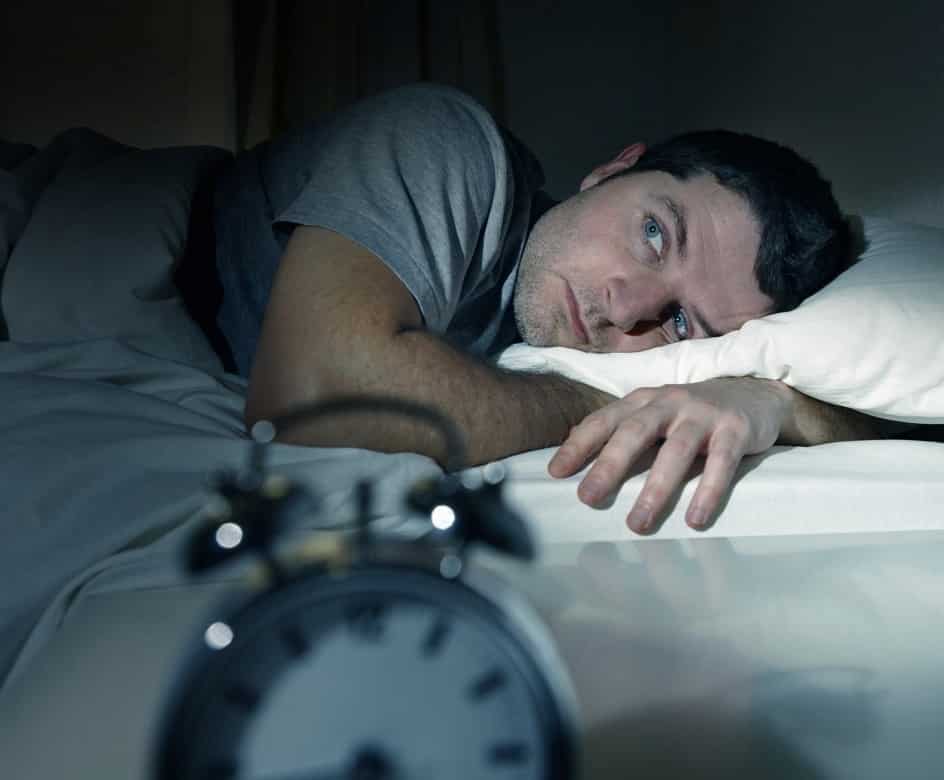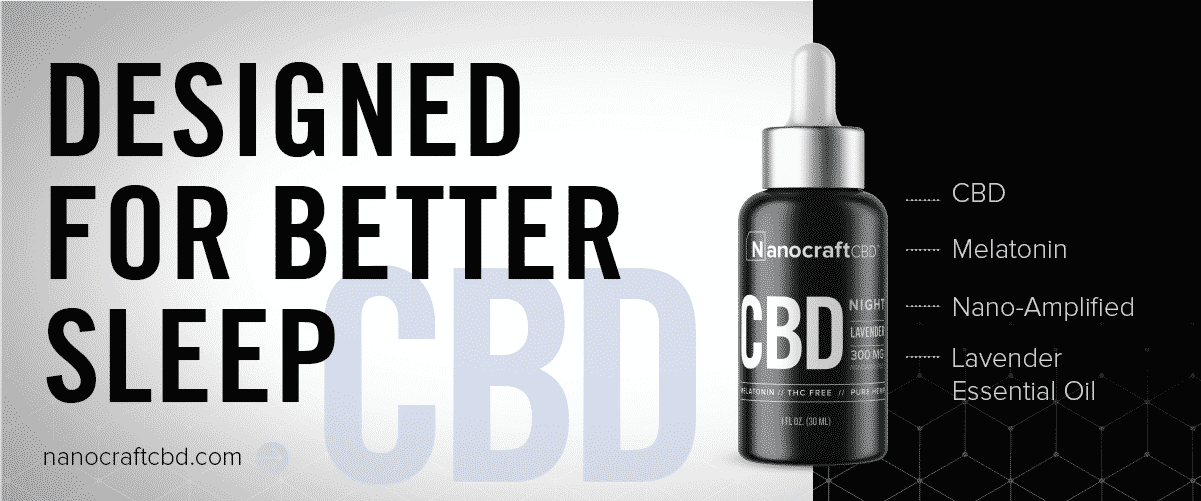CBD for Insomnia: Is It Worth a Try?

CBD is the most therapeutic non-psychedelic cannabinoid derived from hemp. Read on to learn how you can use CBD for insomnia and improve your overall life quality.
In the busy lifestyle many of us lead, sleep can often take the backseat over numerous obligations and tight deadlines. Getting more than seven hours of sleep as an adult is vital for preserving health and energy, and remaining a productive member of the society. Failing to give sleep the priority it deserves can lead to psychological complications such as excess of stress, which in turn may make it even more difficult to establish normal sleep patterns, and may even lead to insomnia.
The Scope and Consequences of Poor Sleep
Even though it’s not often discussed, insomnia is a disease with a tremendous negative impact on overall life quality. Official 2014 sleep statistics from the CDC are nothing short of appalling. Here are some facts:
- Over a third of Americans are suffering from acute periods of less than seven hours of sleep (35.2%).
- About a third of those cases (around 10% total) have associated symptoms of daytime functional impairment consistent with the diagnosis of insomnia.
- People between 25 and 54 years of age get significantly less sleep than younger or older generations.
- African Americans, Native Hawaiians, and multiracial individuals are more likely to be under-sleepers (between 44 and 46% in these ethnic groups).
- Health risk factors significantly correlated with getting sub-optimal sleep include obesity, lack of physical activity, and smoking.
Additional research shows that getting insufficient sleep can lead to a number of health complications including cardiovascular problems, disruption of metabolism, and various somatic symptoms. Studies also unequivocally report that lack of sleep corresponds to higher mortality rates. The case is clear – lack of sleep is literally deadly. Insomnia – even more so.
In regards to the CDC statistics, it’s unlikely a coincidence that the age group of people getting the least amount of sleep matches the age of being active in the workforce. It is highly likely that work-related stress and anxiety are the driving causes of sleep deprivation and insomnia in adults.
Another very important factor that can cause insomnia is depression. Research reports that about three quarters of depressed patients suffer from insomnia. Given that the depression rate in the US is about 7.1%, those affected by depression make up about 15% of the overall total of under-sleepers or about half of the insomniac population.
Do Sleeping Pills Help… Or Hurt?
Not only is insomnia a deadly public health problem but its implications and co-morbidity are far-reaching and not completely understood by science yet. What we do know is that for most people suffering the main course of action to counter it is using sleeping pills.
Data from a CDC survey conducted between 2005 and 2010 shows that about 4% of US adults aged 20 and over had used prescription sleep aids in the month before responding. Sleep aid use increases with age and education, and it’s higher among women (5.0%) than in men (3.1%). This survey is one of a kind and, unfortunately, almost a decade old; it’s likely that the situation has only worsened.
Sleeping pills have common side effects. One study reported that about 80% of individuals using sleeping pills experience one or more residual effects such as drowsiness, difficulty concentrating, and impaired memory, which lead to the following impairments in everyday functioning: work time missed, impact on work productivity, and impact on non-work activity.

Going overboard on sleeping pills can lead to sudden bouts of exaustion.
Even more concerningly, due to being connected to 20 reported deaths and 46 non-fatal but serious injuries, hypnotics such as eszopiclone (Lunesta), zaleplon (Sonata), and zolpidem (Ambien) have recently been forced by the FDA to add black-box warnings to their containers.
A research review from 2018 with a particularly troubling title Hypnotic drug risks of mortality, infection, depression, and cancer: but lack of benefit further expands on the dangers of sleeping pills, claiming that “hypnotics are related to serious illnesses and premature deaths from cancer, serious infections [most commonly of the upper-respiratory system], mood disorders, accidental injuries, suicides and homicides.” The researchers also state that the “recommended doses objectively increase sleep little if at all, daytime performance is often made worse (not better) and the lack of general health benefits is commonly misrepresented in advertising.”
Sadly, as scary as all this seems, it’s just a part of the new normal. Western medication is generally designed to treat symptoms, not underlying causes of illnesses. For the most part, this works well enough, but for things like mental disorders, it usually ends up creating a bigger mess than before. However, per usual, the vicious cycle emerges once people become reliant on the small instantaneous benefits without seeing the big picture harm, the pharmaceutical companies become dependent on the income generated by mass sales, and further research into the dangers of the chemicals gets stifled by big money and lobbying, extending the drugged out, self-destructive status quo beyond what should be its breaking point.
Alternative Treatments – CBT and CBD
So, if sleeping pills are dangerous and sub-effective, what are the alternatives?
The healthiest and most responsible thing to do is to understand and resolve the underlying causes of insomnia. Psychotherapy methods such as the cognitive behavioral treatment (CBT) or the bright light treatment of circadian rhythm disorders offer safer and more effective approaches to normalizing sleep. However, therapy requires money and time – things that few people, and especially the overworked, stressed out, or depressed insomniac, rarely has in excess these days.
Emerging as one of the most effective and affordable natural cures for insomnia is CBD oil. CBD is a compound found in cannabis and hemp (cannabis plants with less than 0.3% THC content). Unlike its cannabinoid relative THC, it provides all the beneficial physical and psychological effects of cannabis – but without the mind-altering effects. It is also mostly legal (depending on the state you live in) and with fewer and milder side effects, meaning that you can avoid the usual “hangover” feeling that follows consuming cannabis the night before by using strictly CBD oil.
Scientific research of the effects of CBD on sleep is still in its infancy. A recent study, the only one published as of yet that focuses specifically on this, has reported that two thirds of the participants, who were suffering from anxiety and sleep disorders, improved their sleeping patterns by using CBD. The improvement was sustained, albeit fluctuating.
Science aside, anecdotal reports of the effectiveness of CBD oil for sleep are numerous, and it has even made an appearance in mainstream media.
Can CBD Alleviate the Causes of Insomnia?
There is also a plethora of research indicating that CBD can successfully be used to treat the most frequent underlying causes of poor sleep and insomnia – stress and depression.
CBD works by stimulating the parasympathetic nervous system (the part responsible for promoting rest, healing, rejuvenating and regenerating) and inhibiting the effects of the sympathetic nervous system (which is responsible for eliciting responses to physical, psychological, and emotional stress, as well as triggering the fight-or-flight mechanism).
Furthermore, CBD activates the 5-HT1A receptor, which takes in serotonin. This neurotransmitter is thought to be responsible for regulating levels of anxiety and happiness, and the quality and intensity of experienced moods.
These two mechanisms of action converge to create a calming effect for CBD on the central nervous system and balance out the flow of the neurotransmitter responsible for mood.
However, if using CBD for insomnia, it’s important to note that the effects are dose-dependent and highly idiosyncratic. For example, in small doses it can make you more alert, awake and productive, but in higher doses it can induce sleepiness and drowsiness. For others, the effects can differ; it depends on the body weight, how individual metabolisms process the compound, and how cannabinoid receptors are distributed throughout the body.
To add to the confusion, CBD has not been approved by the FDA as a treatment for any condition other than epilepsy. Due to this, the market is full of products which may not always have the most precise descriptions. As dosage is critical when taking CBD for insomnia, it’s highly important to only buy from reputable and trusted vendors.
Even if you get the best CBD oil for insomnia, determining the perfect dosage will still be a matter of experimentation. However, on the plus side – there is nothing that can really go wrong.
How to Take CBD Oil for Insomnia
CBD is available for consumption in several forms and methods. CBD oil is probably the most popular, but it can also be ingested in capsule form, or even as a chocolate or gummy bear. Vaporizing the oil is the most effective way of intake, with lower health risks than those associated with traditional smoking. It is also the quickest-acting because CBD molecules go directly into bloodstream through the lungs.
Taking CBD edibles is also highly recommended for insomnia. Ingesting CBD orally takes longer because it goes through the digestive tract and gets metabolized in the liver, like regular dietary supplements. However, the advantage is that the effect duration is significantly longer than when it’s inhaled. An in-between solution is applying CBD tinctures sublingually; this way of administration allows the CBD to be relatively rapidly absorbed (in about 5 to 20min).

Our recommended brand of CBD for insomnia is Nanocraft CBD. Click here to shop
All in all, it’s best to experiment with different methods of consumption and find the ideal one for you.
You can also combine CBD with other sleep-promoting agents, which will increase your chances of obtaining the desired effect. For example, plants such as hops, chamomile, and lavender contain terpenoids which work in synergy with CBD oil – this means that the substances these plants contain increase the effect CBD oil will have on you.
Asides from the benefits of CBD for insomnia and general sleep quality, it also has many other health applications – such as reducing inflammation, stimulating recovery and relaxation, treating auto-immune diseases, psychiatric disorders, skin conditions, PTSD, multiple sclerosis, neurological imapairments, even cancer and other serious health issues.
If you want to increase the quality of your sleep, using CBD oil for insomnia might be the solution you are looking for – along with benefiting your health in many other ways. Still, before taking CBD, make sure you consult with your physician, at the very least to learn about any potential negative interactions in case you are using pharmaceuticals.
Have you tried using CBD oil for insomnia already? What are your experiences?
If you haven’t, are you considering it? What are your concerns?
Please share them with us in the comments below.
EntheoNation – the process of awakening the Divine within.
Entheo Nation – a global tribe of visionary people living life at the cutting edge of awakening.
EntheoNation is a web show featuring visionaries pioneering the cutting-edge of awakening through psychedelic science, modern shamanism, & new paradigm lifestyles.
Our vision is an environmentally sustainable, socially-just, spiritually-fulfilling, and evolved human presence on this planet, one that integrates ancient wisdom, with modern times.

I am interested in getting cannabis oil for insomnia Ibs joint pains and stomach ulcer don’t know what strength to get please advice on it x